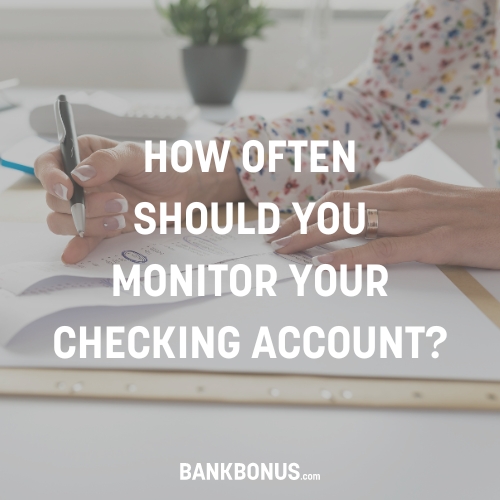Many businesses and individuals weigh the benefits of single vs. duplicate checks for recordkeeping purposes. Choosing the right type of checks can make a difference in managing your finances.
Whether you’re concerned about tracking your transactions or looking for a convenient way to keep records, understanding the pros and cons of single and duplicate checks will help you decide which is best.
In this post, we will explore the key differences between these two options and help you make an informed decision that fits your needs.
Single vs. Duplicate Checks
You may not think twice about the kind of check you use, but there are two main kinds of business and personal checks to consider.
Whether you’re writing a check to yourself to transfer funds between accounts or writing a check to someone else for bill payment or other purposes, it’s important to keep track of where your money is going.
How Single Checks Work:
Single checks are the traditional and most commonly used type of checks. You only create one paper copy when you write a check using a single checkbook. This original check contains all the necessary information, such as the payee’s name, the amount, and the purpose of the payment.
It also contains sensitive information, including checking account numbers, which can pose a privacy risk if it falls into the wrong hands.
Many people keep track of their single checks in a check register, a record of cash and check transactions.
How Duplicate Checks Work:
You might wonder how they work if you’ve never used or heard of duplicate checks. When you write a check in duplicate checkbooks, a permanent reference copy is automatically created underneath it on a small piece of carbon paper. Instead of creating just one copy when writing a regular check, duplicate checks allow you to create two.
Duplicate checks usually come in the same type of binding as single checks. Unlike a single check, duplicate checkbooks pair each check with a thin piece of carbon paper behind it. This sheet of carbon paper records the information from your original checks so that you can keep a backup copy of every check for later.
With duplicate checks, you give the top check to the payee and retain the bottom check for recordkeeping purposes.
Because there’s a duplicate sheet attached to each original check, duplicate checkbooks are usually much thicker and more expensive than single checkbooks.
Pros & Cons
Deciding whether to use duplicate checks will depend on your circumstances. Weighing the pros and cons could help you determine what’s right for you.
Pros
- Record keeping: Duplicate checks automatically back up every check you write, making tracking your transactions easier.
- Fraud prevention: A duplicate copy simplifies reconciling your bank statements and ensures the transactions match up.
- Dispute resolution: If you have any questions or disputes about a specific check, having a duplicate copy can provide valuable evidence.
Cons
- Cost: Duplicate checkbooks are usually more expensive than single checkbooks due to the additional carbon copies.
- Storage demands: Because of the carbon copies, duplicate checkbooks tend to be thicker and bulkier, which may not be convenient for carrying around or storing if you want to minimize clutter.
- Outdated: Check-writing isn’t as necessary in the modern world, so duplicate checks are made redundant by software, mobile apps, and online banking
Alternatives to Duplicate Checks
Let’s explore alternative options to duplicate checks for those who prefer a more streamlined and paperless approach to managing their finances.
Duplicate checks are a common solution for ensuring payment security and accuracy. However, there are alternative methods available that can provide similar benefits. Here are three alternatives to duplicate checks:
1. Online Budget Tracker
With technological advancements, online budget trackers have become popular for managing finances. These platforms offer features like expense tracking, bill reminders, and budgeting tools.
Using an online budget tracker allows individuals and businesses to easily monitor their financial transactions and keep track of payments without relying on duplicate checks.
Online budget trackers provide a user-friendly interface that allows you to categorize expenses, set budget goals, and generate reports. Additionally, many of these platforms offer mobile apps, making it convenient to access and manage financial information on the go. You may even get free resources through your online banking account.
Utilizing an online budget tracker can streamline your payment processes, reduce the risk of duplicate payments, and gain better control over your financial decisions.
2. Accounting Software
Accounting software has revolutionized the way businesses handle their financial transactions. These software solutions offer comprehensive features that automate various accounting processes, including payment management.
By leveraging accounting software, businesses can minimize the chances of duplicate payments and improve overall financial accuracy.
Accounting software enables businesses to create and manage digital payment records, track receivables and payables, and generate financial reports.
With advanced features like payment alerts and transaction matching, businesses can easily detect and prevent duplicate payments. Furthermore, the integration capabilities of accounting software allow seamless synchronization with other financial tools, enabling users to have a centralized and organized payment management system.
3. Excel Spreadsheet
For individuals or small businesses seeking a simple yet effective method of managing payments, an Excel spreadsheet can also serve as an alternative to duplicate checks.
By setting up a structured spreadsheet, you can maintain an electronic record of payments, bank account balances, and due dates.
Excel spreadsheets offer customizable templates that users can modify according to their specific payment management needs. With built-in formulas and functions, users can easily calculate totals, track expenses, and flag potential duplicates.
Although not as automated as online budget trackers or accounting software, an Excel spreadsheet provides a budget-friendly option for organizing payment records and reducing the risk of duplicate payments.
While duplicate checks have long been relied upon for payment management, exploring alternative options that can simplify and enhance the process is essential.
Online budget trackers, accounting software, and Excel spreadsheets offer viable alternatives that provide efficiency, accuracy, and control over financial transactions. By leveraging these tools, individuals and businesses can minimize the risk of duplicate payments while effectively managing their finances.
4. Use A Debit Card
Businesses and individuals can purchase and pay bills electronically with a debit or credit card. Check-writing predates electronic payment methods, and some prefer the analog approach.
However, not all merchants accept paper checks anymore, and they present a privacy risk to your bank account information if you’re not careful.
Both credit and debit cards maintain detailed records of your transaction history the same way a duplicate check or check register would.
FAQs
Are single or duplicate checks better?
Single checks are the basic checks you’re probably familiar with. Single checks create one copy of each check to give to the payee. They are ideal if you don’t need to keep track of multiple copies.
On the other hand, duplicate checks create a carbon copy of each check you write, allowing you to keep a record for yourself while still providing the original to the recipient. This process can benefit those who require more detailed record-keeping or want extra security offline. Ultimately, the choice between single or duplicate checks depends on what works best for you.
As debit and credit cards have become the most common form of payment, paper check-writing has largely fallen out of favor. Individuals and businesses can minimize privacy risks and complex record-keeping processes by moving to online banking and budget tools.
What happens if you duplicate a check?
Duplicating a check intending to cash it can lead to serious consequences. If you accidentally duplicate a check, it can result in the check being deposited or cashed twice, causing an overdraft or a potential financial loss.
Duplicating a check can also raise suspicion of fraudulent activity, as banks and financial institutions have strict protocols to prevent check fraud. It is crucial to exercise caution and double-check before submitting a check to avoid the complications and potential legal ramifications of duplicating a check.
Duplicating a check for recordkeeping is different from duplicating a check for fraud. You can’t cash a carbon copy of a check.
Who is responsible if a check is cashed twice?
If a check is cashed twice, the responsibility lies with the bank that processed the duplicate transaction. The bank is accountable for verifying and ensuring the accuracy of each check presented for payment.
Customers should promptly notify their bank if they discover a duplicate transaction, providing relevant details to aid in resolving the issue. The bank is then responsible for investigating, rectifying errors, and reimbursing the customer for any financial loss.
The bank will pursue legal actions against the party who cashed the check twice if it can be proven the person did it intentionally.
How long should you keep duplicate checks?
You should keep duplicate checks for at least three years.
This timeframe allows for sufficient record-keeping while also considering space limitations. Keeping duplicate checks for this duration ensures you have a record of your financial transactions in case of any discrepancies or audits.
However, it is essential to note that certain circumstances, such as legal or tax requirements, may necessitate longer retention periods. You can discuss your options with an accountant or financial advisor to find the best record-keeping and storage methods for your needs.
Single vs Duplicate Checks: Which is Best?
The choice between single vs duplicate checks ultimately depends on your preference and needs. The main difference between single and duplicate checks is how your transactions are recorded.
Duplicate checks can be helpful for individuals and small business owners who want to keep track of their transactions and have a backup hard copy of each check. However, they can also be more expensive and bulky compared to single checks.
If you prefer a paperless and more streamlined approach, you can use online budget trackers, rely on accounting software, create your own Excel spreadsheet, or switch to electronic payment methods. These modern payment and expense tracking methods can replace check-writing.
Ultimately, weighing the pros and cons is important, and choosing the option best suits your financial management style.





Comments are closed.
Comments are closed here.